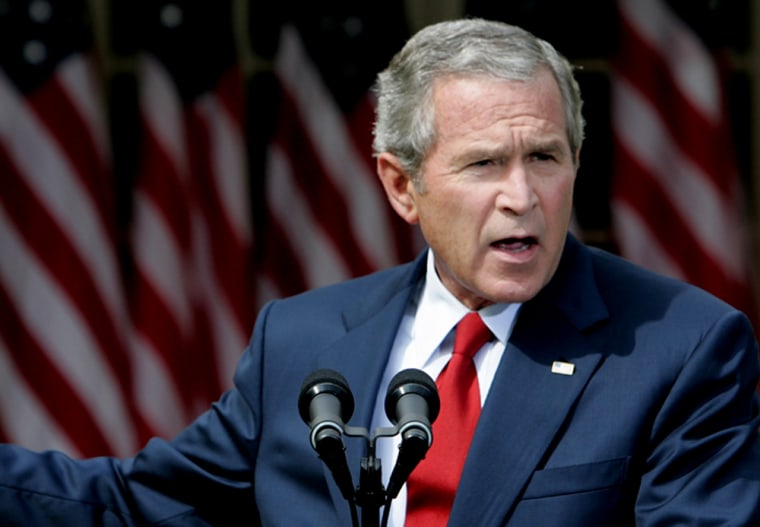Speaking directly to terrorists in his speech on this year’s fifth anniversary of Sept. 11, President Bush said, “America will find you, and we will bring you to justice.”
But because of a lack of evidence, most of the suspected terrorists taken to the detention center at Guantanamo Bay, Cuba, will not see the inside of a courtroom.
Only one out of 10 is facing a military trial, the Pentagon acknowledges. Hundreds could be held indefinitely.
Out of roughly 775 detainees who have come to Guantanamo, former leaders of the Pentagon's Criminal Investigation Task Force said they were able to develop credible criminal cases against only about 100.
And some of those have been released. The investigators said that some criminal suspects against whom they had good evidence have been among the 340 detainees released, because they were citizens of Great Britain or other cooperating countries who made diplomatic deals with the United States. Citizens of some 40 nations are still at Guantanamo.
Of the 435 who remain in the prison camps, the Pentagon says, another 110 have been labeled as ready to release, but the United States has not been able to find a country willing to take them under terms such as continued confinement or monitoring.
Of the remaining 325, how many will face trial?
At this point, “more than 70,” the Pentagon says.
Of those 70, only 10 have been certified by the president as al-Qaida members or supporters eligible for trial. The trials, called military commissions, will allow the detainees some rights, such as advice of an attorney, but will allow evidence that wouldn't be permitted under the rules in U.S. criminal courts. They are expected to begin next year at the earliest.
That leaves approximately 250 detainees, more than half of those still at Guantanamo, who are being held indefinitely, not because they are awaiting a trial, but because the U.S. considers them to be dangerous or to possess intelligence information, the Pentagon said. The Supreme Court has upheld that the government may detain enemy combatants for the duration of hostilities - in an unconventional war that may never end.

The Pentagon notes that any detainee release carries risk. It says about 15 released detainees have returned to the battlefield, taking part in hostile acts against Americans or allies.
“It's important for Americans and others across the world to understand the kind of people held at Guantanamo,” Bush said last month.
“These aren't common criminals, or bystanders accidentally swept up on the battlefield. We have in place a rigorous process to ensure those held at Guantanamo Bay belong at Guantanamo. Those held at Guantanamo include suspected bomb makers, terrorist trainers, recruiters and facilitators and potential suicide bombers. They are in our custody so they cannot murder our people.”